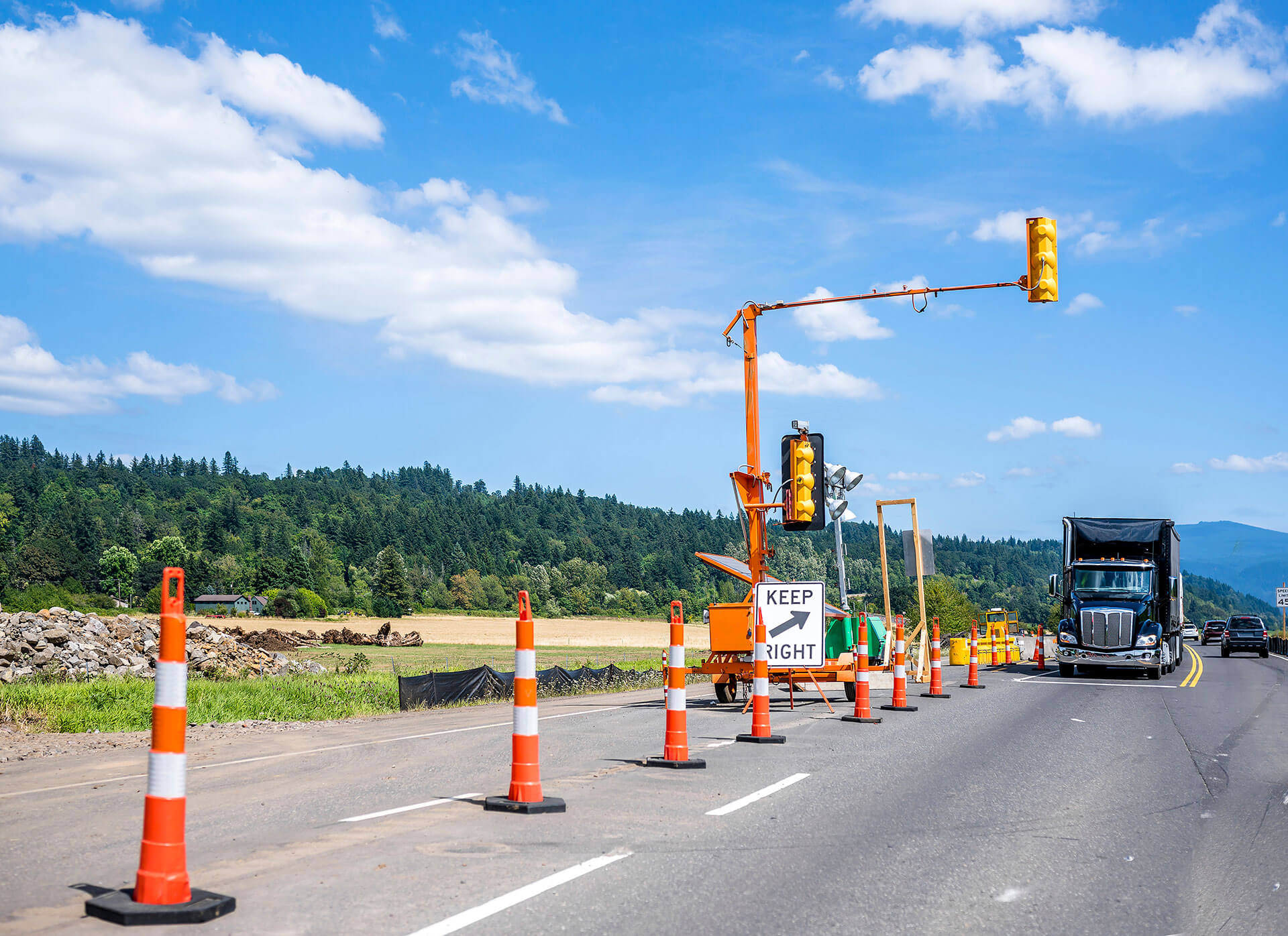Summer Driving Hazards

Summer driving presents many challenging conditions for drivers. Avoiding potential losses requires drivers to recognize the hazards that can lead to a vehicle crash, know the defense, and react properly. Read the information below and ask yourself how you can improve your driving style in any of the hazard categories.
Recognize the Hazards
Environment
Summer brings reduced visibility with sun glare, high winds, and severe storms. Traffic congestion can also worsen with more pedestrians, motorcyclists, RVs, and farm equipment on the road.
Equipment
Higher temperatures can lead to mechanical breakdowns, such as engine overheating, tire blowouts, A/C failures, and reefer degradation that could cause spoilage.
Personal Behaviors
Summer driving hazards can be stressful and lead to aggressive driving, such as speeding, tailgating, lane blocking, and even road rage. Dehydration can also cause fatigue and distracted driving.
Know the Defense
Observe Proper Speed for Conditions
In adverse conditions, reduce speed 2-3 mph below the flow of traffic, not to exceed the posted speed limit. Reducing speed provides more reaction time and also reduces wear and tear on equipment.
React Properly to Hazards
Choose routes that avoid traffic congestion and construction zones. Slow down in hazardous conditions, and if driving is too dangerous, pull over in a safe location and wait it out.
Maintain Proper Following Distance
Keep a minimum of six seconds behind the vehicle in front. Add more space if additional hazards, like sun glare, heavy rains, and fog, are present.
Be Attentive to the Road Ahead
Make quick glances to mirrors, side windows, and road signs, then return your attention to the road ahead. Watch for slowing traffic. During stops, monitor forecasts for inclement weather ahead.
Avoid Distractions
Wear sunglasses to reduce sun glare. Put away your cell phone and avoid eating and drinking while driving. Drink plenty of water to stay hydrated. Avoid heavy meals and get plenty of rest.
Vehicle Inspection
Drivers should conduct a thorough pre-trip inspection and have repairs made before leaving. Keep windows and mirrors clean. Carry spare lights and fuses in case of emergency.
Note: These lists are not intended to be all-inclusive.
The information in this article is provided as a courtesy of Great West Casualty Company and is part of the Value-Driven® Company program. Value-Driven Company was created to help educate and inform insureds so they can make better decisions, build a culture that values safety, and manage risk more effectively. To see what additional resources Great West Casualty Company can provide for its insureds, please contact your safety representative, or click below to find an agent.
© Great West Casualty Company 2018. The material in this publication is the property of Great West Casualty Company unless otherwise noted and may not be reproduced without its written consent by any person other than a current insured of Great West Casualty Company for business purposes. Insured should attribute use as follows: “© Great West Casualty Company 2018. Used with permission by Great West Casualty Company.”
This material is intended to be a broad overview of the subject matter and is provided for informational purposes only. Great West Casualty Company does not provide legal advice to its insureds, nor does it advise insureds on employment-related issues. Therefore, the subject matter is not intended to serve as legal or employment advice for any issue(s) that may arise in the operations of its insureds. Legal advice should always be sought from the insured’s legal counsel. Great West Casualty Company shall have neither liability nor responsibility to any person or entity with respect to any loss, action, or inaction alleged to be caused directly or indirectly as a result of the information contained herein.




